Brexit: Does suspension 'slam brakes' on NI legislation?
- Published
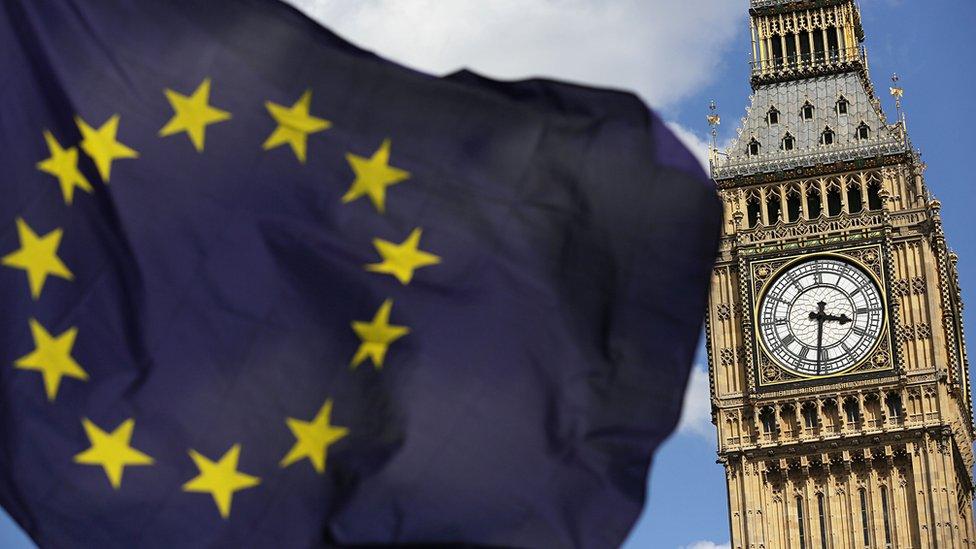
The UK's planned departure date from the European Union is coming swiftly down the tracks
Parliament is set to be suspended shortly in order for the government to hold a Queen's Speech - laying out its policy agenda - in October.
But the controversial move does not just make it harder for MPs to block a no-deal Brexit.
When a Parliament is suspended - or prorogued - all outstanding bills going through the legislative process, external are effectively killed off.
So what could that mean for laws relating to Northern Ireland?
After Prime Minister Boris Johnson announced his decision to suspend Parliament, the Labour MP Jess Phillips took to social media to say she was concerned about what it would mean for a flagship piece of legislation relating to domestic abuse, external.
Allow X content?
This article contains content provided by X. We ask for your permission before anything is loaded, as they may be using cookies and other technologies. You may want to read X’s cookie policy, external and privacy policy, external before accepting. To view this content choose ‘accept and continue’.
It was introduced by Theresa May in the last days of her premiership but has not moved through most stages of the Parliamentary process yet.
The bill would bring in the first ever statutory government definition of domestic abuse to include economic abuse and controlling and manipulative non-physical abuse.
Crucially, it would also be extended to Northern Ireland to allow coercive control to become an offence in the region for the first time.
'Lost in brinkmanship'
That's because Northern Ireland has been without its own government for more than two years now, with no ministers in place to pass any laws through the devolved institutions.
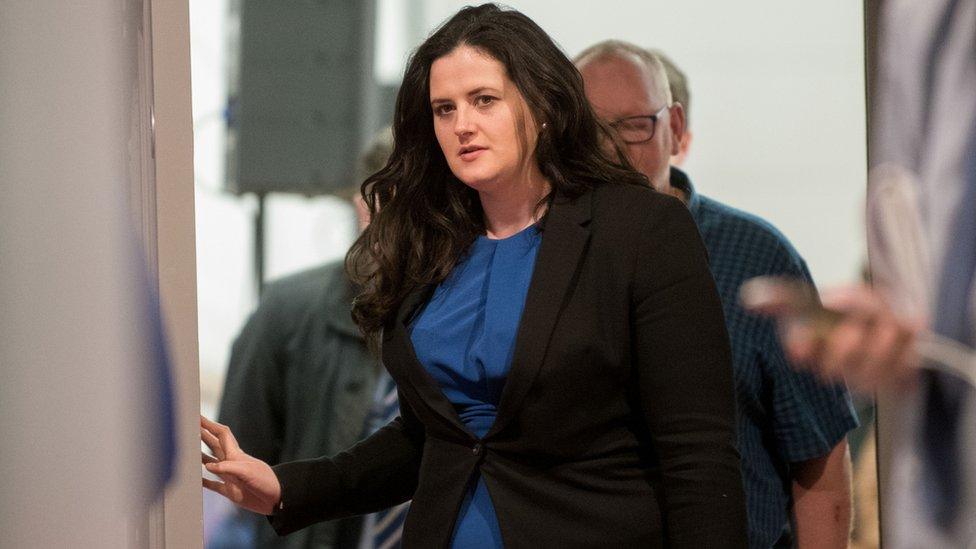
Claire Sugden worked on domestic abuse laws when she was justice minister before Stormont collapsed
Former Stormont justice minister Claire Sugden, who had backed the move to extend the law to Northern Ireland, said it would be an "insult" to victims if the bill was lost in "brinkmanship".
"We've waited too long and this needs to happen now to prevent further victims," she said.
"The prime minister talks big about improving people's lives through his fresh domestic agenda and if he means it then he must prioritise this bill.
"A new broom won't sweep away the issues that continue to destroy lives."
She added that if the bill fell in Westminster, it could be picked up by a future Stormont executive, but that required the two main parties to "put aside their party politics".
Asked by BBC News NI if Number 10 would commit to ensuring the bill was part of the next programme for government, the Home Office said the government was "determined to continue with the work done so far on legislating to support the victims of domestic abuse".
Abuse compensation delay
In recent months, the government has also been under pressure to pass legislation through Westminster to provide compensation to victims of historical institutional abuse (HIA).
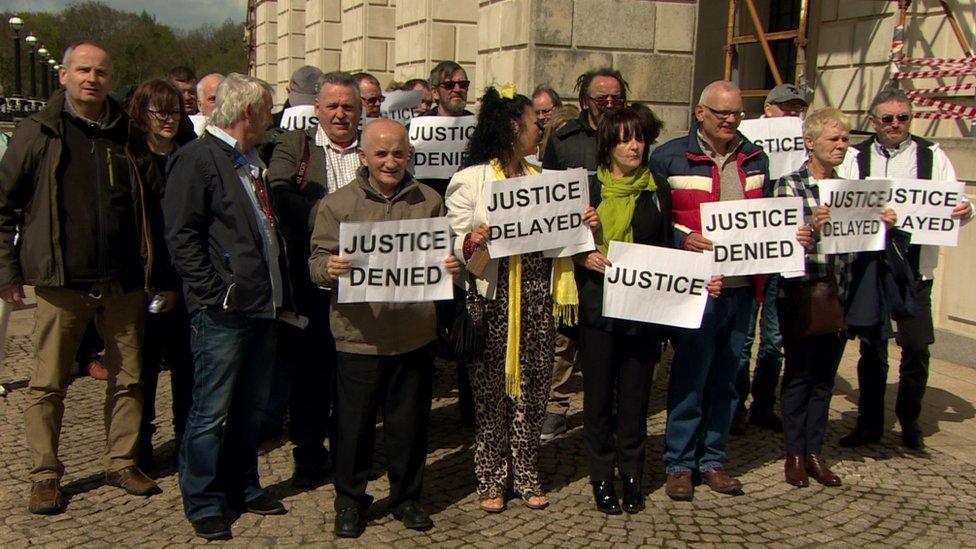
Campaigners have been calling for abuse compensation to be implemented since early 2017
The HIA Inquiry was set up by Stormont leaders in 2013 to investigate allegations of abuse in children's residential homes run by religious, charitable and state organisations.
Since the inquiry ended two years ago, 30 survivors of historical institutional abuse have died and payments have been stalled due to the lack of devolution.
Conservative MP Simon Hoare, the chair of the Northern Ireland Affairs Committee, said on Thursday the looming suspension effectively "slams the brakes" on attempts to bring the laws through Westminster.
Allow X content?
This article contains content provided by X. We ask for your permission before anything is loaded, as they may be using cookies and other technologies. You may want to read X’s cookie policy, external and privacy policy, external before accepting. To view this content choose ‘accept and continue’.
Last week, victims and survivors met the Northern Ireland Secretary Julian Smith and said he told them he was looking for a "slot" in early autumn to bring it to Parliament.
Margaret McGuckin from the abuse victims' group Savia, said the government's decision to prorogue Parliament had "scuppered" that.
"It is heartbreaking and outrageous, that is no way to run a government - but we are not stopping," she said.
"I have written to the secretary of state and Simon Hoare to put through the legislation [in] early September before Parliament is suspended."
For its part, the government has already committed to bringing through legislation to provide redress to victims, if Stormont is not restored before the end of 2019.
But victims have said they cannot wait any longer and want the law fast-tracked through Parliament.
Delayed dates?
Since Wednesday's announcement of impending prorogation, questions have also been raised about whether it could affect potential law changes regarding same-sex marriage and abortion laws in Northern Ireland.
In July, the government passed a bill that will legalise same-sex marriage and liberalise abortion laws on the condition that Stormont is not restored by 21 October.

Same-sex marriage and abortion - issues that divide the Stormont parties - look certain to change, unless devolution returns soon
Ultimately, that has already become law and will not be affected by the suspension of Parliament, which will resume on 14 October when the government holds its Queen's Speech.
The government has committed to changing the laws on those two matters - as well as introducing a pension for victims of the Troubles - and there's no suggestion at the moment that that legislation would be delayed.
The other question about 21 October is what happens regarding the government's obligation to call a Stormont assembly election if devolution isn't restored by 21 October.
The law gives the Northern Ireland secretary the power to order an extension and push back that requirement to 13 January 2020.
Given mid-October will be fraught in Westminster as the Brexit deadline of Halloween looms large, talk of restoring Stormont or an assembly election could be well down the agenda.
- Published28 August 2019
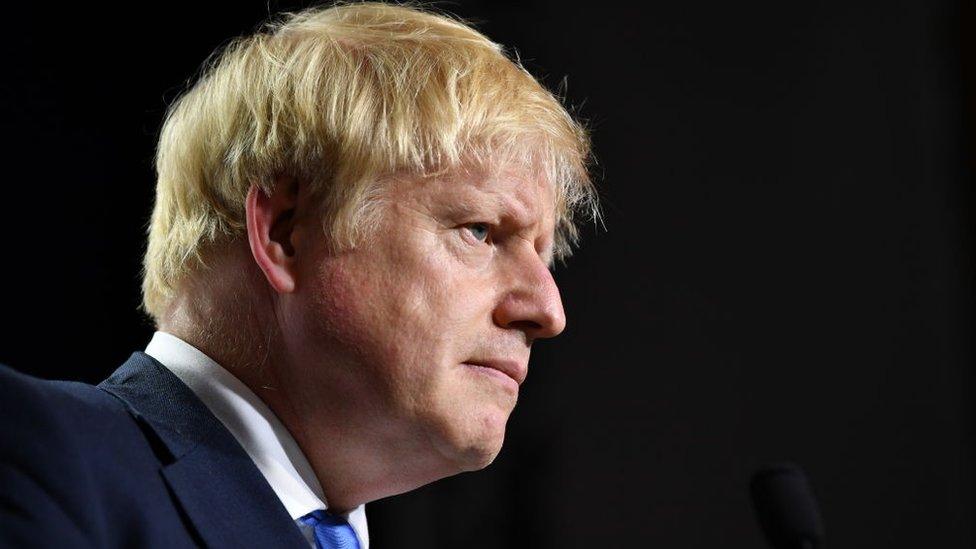
- Published17 July 2019
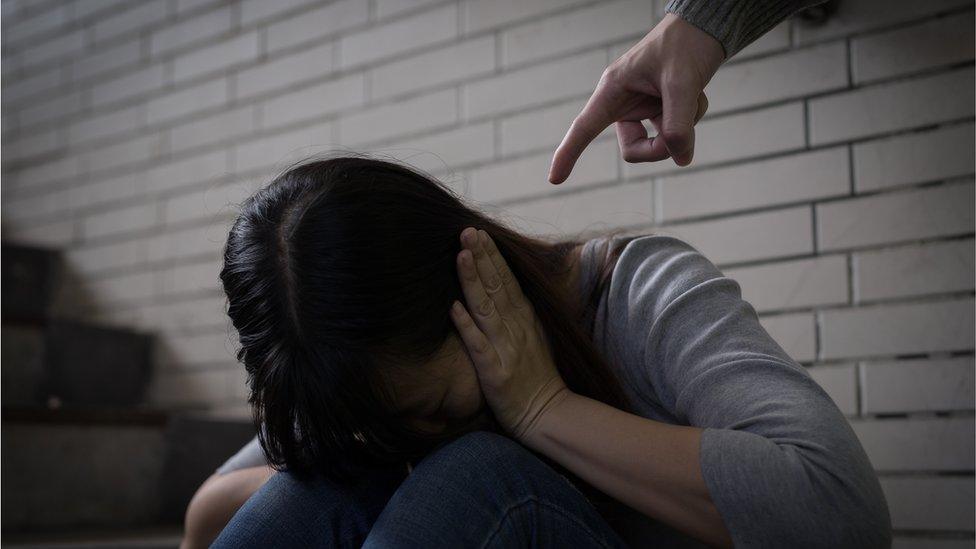
- Published10 July 2019
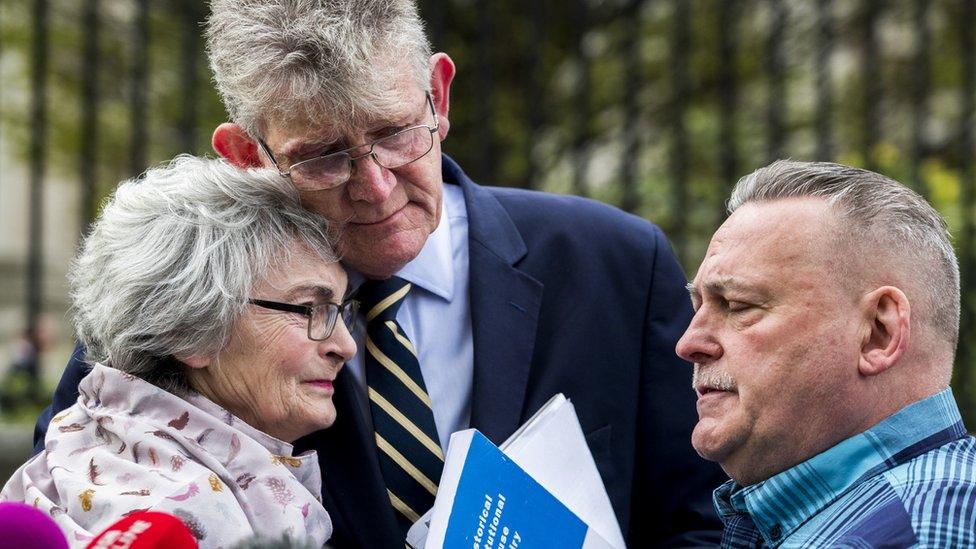
- Published10 July 2019
